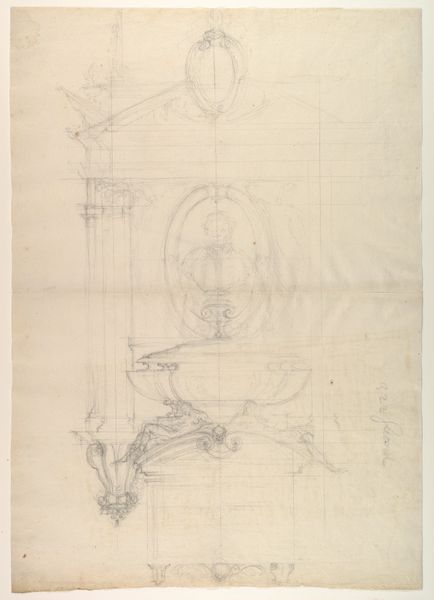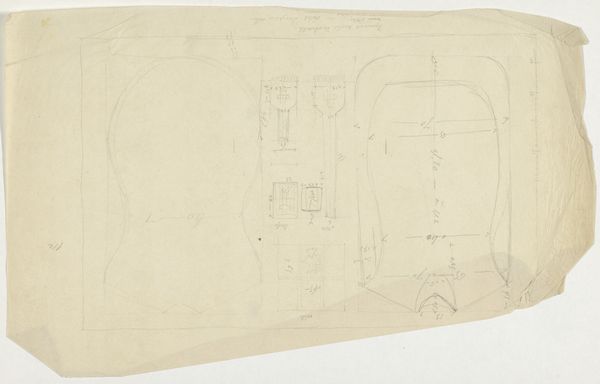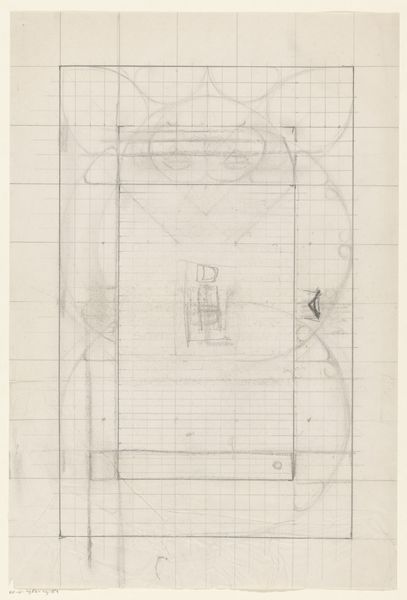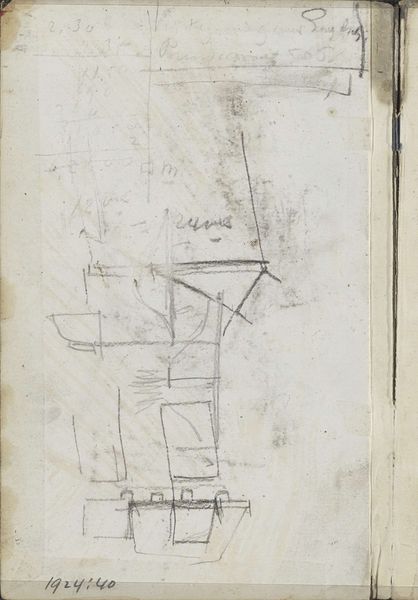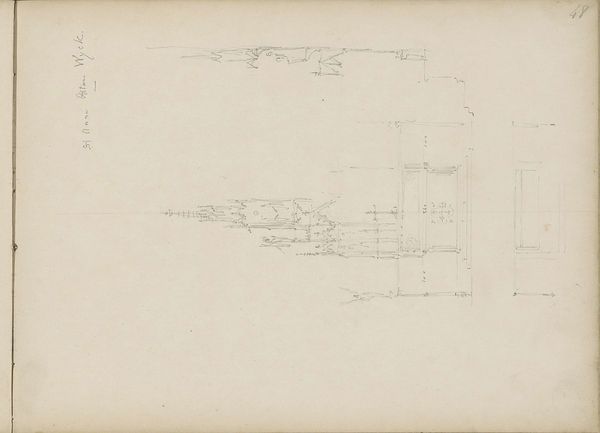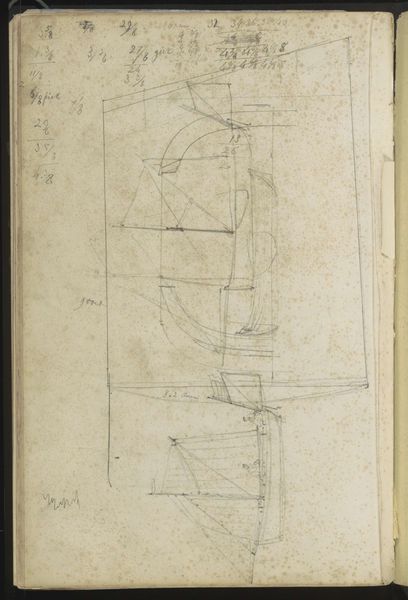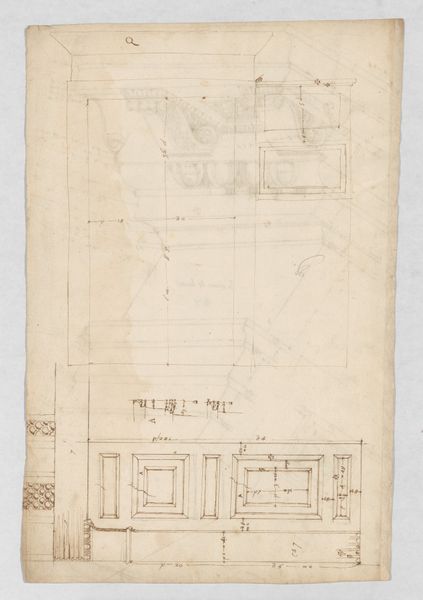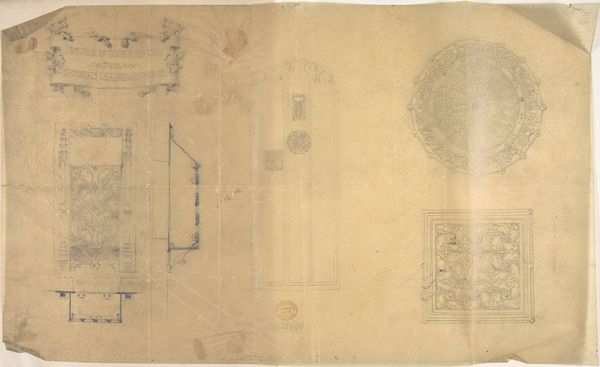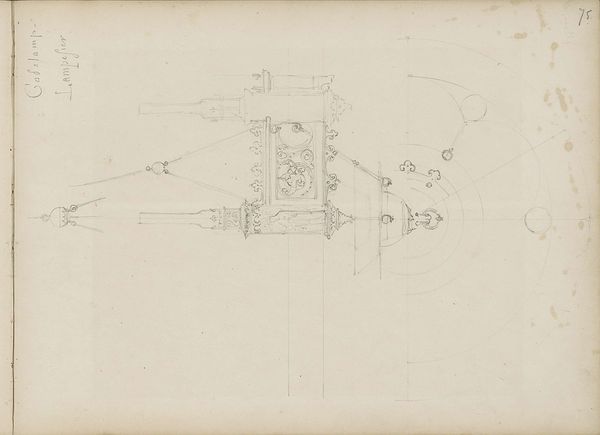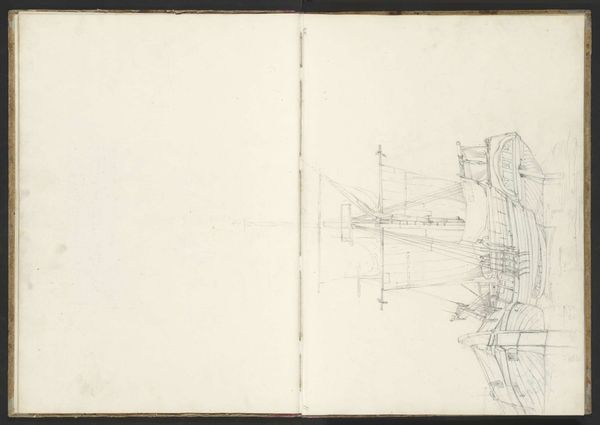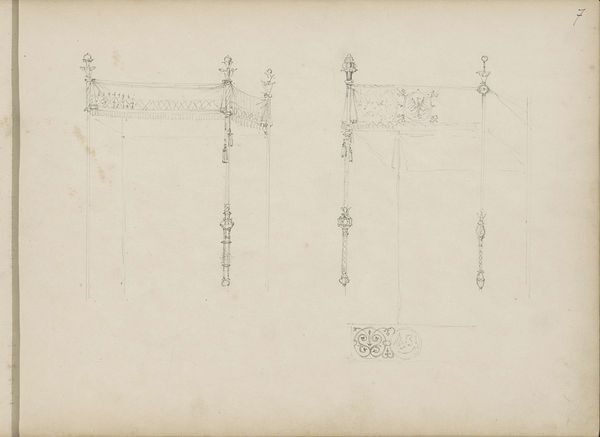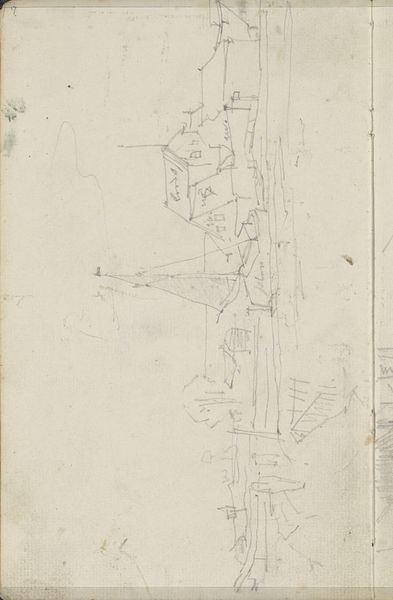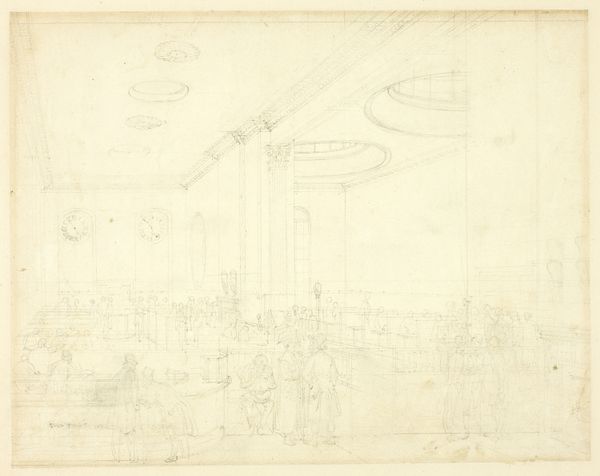
drawing, pencil
#
drawing
#
table
#
aged paper
#
toned paper
#
light pencil work
#
art-nouveau
#
incomplete sketchy
#
form
#
personal sketchbook
#
underpainting
#
detailed observational sketch
#
pencil
#
line
#
sketchbook drawing
#
sketchbook art
Dimensions: height 980 mm, width 944 mm
Copyright: Rijks Museum: Open Domain
Curator: We're looking at "Ontwerp voor een tafel voor J.P.W. Schuurman," a design for a table by Mathieu Lauweriks, created around 1898. It’s a pencil drawing, almost like a blueprint. Editor: My initial reaction is that it’s quite unsettling. The drawing looks incredibly precise and technical, but that central figure dominates the composition. It almost feels like some archaic goddess presiding over an architectural plan. Curator: Lauweriks was deeply interested in geometric systems. You see that grid overlaid on the paper? He explored theosophy and sought universal harmonies in design. This piece reflects the process he followed. Notice the careful notations alongside the sketch - they give insight into his thinking. Editor: The figure reminds me of Isis or perhaps a caryatid, burdened yet powerful. Lauweriks seems to have incorporated not just architectural elements, but also a layer of symbolic representation. Are we meant to understand this table as something beyond mere furniture? Is it an altar? Curator: Precisely! The intention wasn't just functionality. He's elevating craft to something spiritual and intellectual, collapsing the separation of fine and applied arts, through a drawing made with readily available pencils on paper. Editor: And those geometric shapes! The circles and grids feel almost mystical when juxtaposed with the human figure. It speaks to this pursuit of order in a world that is inherently chaotic. It feels as if Lauweriks is embedding layers of meaning for Schuurman. What purpose could it serve within a space? Curator: Well, considering Lauweriks’ aesthetic and devotion to harmonic principles, Schuurman would likely have understood its place within the home. In his Art Nouveau style, design and manufacturing converge to create a symbolic structure meant for daily use. Editor: It's incredible how much this simple drawing reveals, isn't it? Curator: Yes, seeing this design reveals that materials meet with process. The process, in turn, meets symbolism and meaning to shape this table design for Schuurman.
Comments
No comments
Be the first to comment and join the conversation on the ultimate creative platform.
